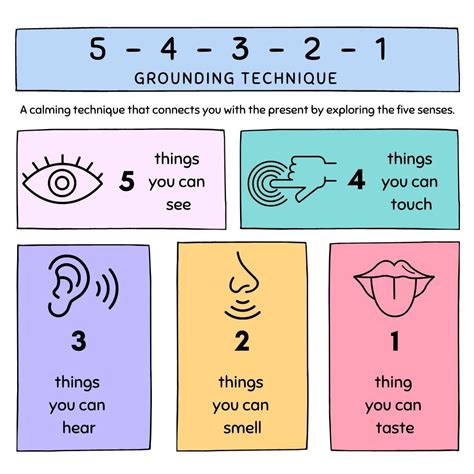Intro
Explore non-clinical healthcare career options beyond the bedside. Discover alternative roles in healthcare that dont require direct patient care, such as healthcare management, medical writing, and health IT. Learn about the various career paths, required skills, and education needed to succeed in these in-demand fields and find a fulfilling career in healthcare.
The healthcare industry is often associated with clinical roles, such as doctors and nurses, who work directly with patients to diagnose and treat medical conditions. However, the healthcare sector is much broader, encompassing a wide range of non-clinical careers that are just as essential to the delivery of quality patient care. From healthcare management and policy to medical writing and research, there are numerous career paths that allow individuals to contribute to the healthcare industry without being directly involved in patient care.

The demand for non-clinical healthcare professionals is on the rise, driven by the increasing complexity of the healthcare system, advances in technology, and the need for cost-effective solutions. According to the Bureau of Labor Statistics, employment of healthcare managers, for example, is projected to grow 32% from 2020 to 2030, much faster than the average for all occupations.
Healthcare Management and Administration
Healthcare management and administration careers involve overseeing the business side of healthcare organizations, such as hospitals, clinics, and nursing homes. Professionals in these roles are responsible for ensuring the efficient operation of healthcare facilities, managing budgets, and implementing policies to improve patient care.
Some common non-clinical healthcare management careers include:
- Healthcare administrator
- Hospital manager
- Clinical department manager
- Healthcare consultant

Key Skills and Qualifications
To succeed in healthcare management and administration, individuals typically need:
- A bachelor's or master's degree in healthcare administration, business administration, or a related field
- Strong leadership and communication skills
- Analytical and problem-solving abilities
- Knowledge of healthcare regulations and policies
Health Informatics and Technology
Health informatics and technology careers involve designing, implementing, and managing healthcare information systems, such as electronic health records (EHRs) and telehealth platforms. Professionals in these roles work to improve the efficiency and effectiveness of healthcare services through the use of technology.
Some common non-clinical health informatics and technology careers include:
- Health information manager
- Telehealth coordinator
- Healthcare data analyst
- Medical software developer

Key Skills and Qualifications
To succeed in health informatics and technology, individuals typically need:
- A bachelor's or master's degree in health informatics, computer science, or a related field
- Strong technical skills, including programming and data analysis
- Knowledge of healthcare regulations and policies
- Analytical and problem-solving abilities
Medical Writing and Communication
Medical writing and communication careers involve creating content to educate healthcare professionals, patients, and the general public about medical topics. Professionals in these roles work to communicate complex medical information in a clear and concise manner.
Some common non-clinical medical writing and communication careers include:
- Medical writer
- Healthcare communications specialist
- Medical editor
- Public health educator

Key Skills and Qualifications
To succeed in medical writing and communication, individuals typically need:
- A bachelor's or master's degree in English, communications, or a related field
- Strong writing and editing skills
- Knowledge of medical terminology and concepts
- Analytical and problem-solving abilities
Healthcare Research and Policy
Healthcare research and policy careers involve studying healthcare issues and developing policies to improve healthcare outcomes. Professionals in these roles work to identify best practices, evaluate healthcare programs, and advocate for policy changes.
Some common non-clinical healthcare research and policy careers include:
- Healthcare researcher
- Policy analyst
- Public health specialist
- Healthcare advocate

Key Skills and Qualifications
To succeed in healthcare research and policy, individuals typically need:
- A bachelor's or master's degree in a field such as public health, policy, or research
- Strong analytical and problem-solving skills
- Knowledge of healthcare regulations and policies
- Communication and advocacy skills
As the healthcare industry continues to evolve, the demand for non-clinical professionals will only continue to grow. Whether you're interested in healthcare management, health informatics, medical writing, or healthcare research and policy, there are numerous career paths to explore. By pursuing a non-clinical career in healthcare, you can make a meaningful contribution to the industry while also enjoying a rewarding and challenging career.
What are some common non-clinical healthcare careers?
+Some common non-clinical healthcare careers include healthcare management and administration, health informatics and technology, medical writing and communication, and healthcare research and policy.
What skills and qualifications are required for non-clinical healthcare careers?
+The skills and qualifications required for non-clinical healthcare careers vary depending on the specific role, but common requirements include a bachelor's or master's degree in a relevant field, strong analytical and problem-solving skills, and knowledge of healthcare regulations and policies.
What is the job outlook for non-clinical healthcare careers?
+The job outlook for non-clinical healthcare careers is strong, with many roles experiencing faster-than-average growth. According to the Bureau of Labor Statistics, employment of healthcare managers, for example, is projected to grow 32% from 2020 to 2030.
We hope this article has provided you with a comprehensive overview of non-clinical healthcare career options. Whether you're just starting your career or looking to transition into a new role, we encourage you to explore the many opportunities available in this field. Share your thoughts and experiences in the comments below, and don't forget to share this article with others who may be interested in non-clinical healthcare careers.
